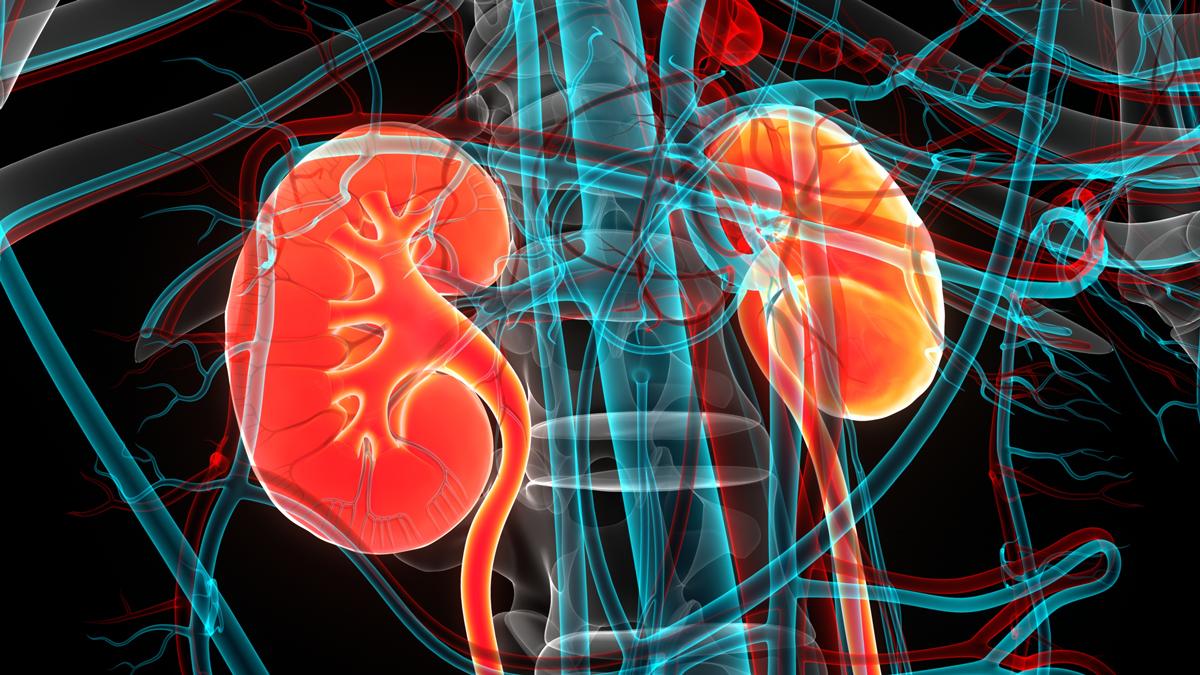Spotlight on kidney disease: Driving change for patients

Katherine Forbes, director of innovation and enterprise at Kidney Research UK, discusses the unique, evolving role of medical research charities in facilitating collaborative partnerships and new ways of working to accelerate research and drive innovations designed to improve patient outcomes.
The figures are stark. The number of patients with, or at risk of, kidney disease is growing and threatens to overwhelm an already stretched health and care system in the UK.
The recently published health economics report, ’Kidney Disease: a UK public health emergency’, commissioned by Kidney Research UK, estimates there are 7.2 million people in the UK currently living with chronic kidney disease - more than 10% of the entire population. Furthermore, over three million people are living with later stages of chronic kidney disease (CKD, stages 3-5) and almost four million are believed to have as yet undiagnosed early-stage kidney disease, which could progress and require treatment.
The total economic burden of kidney disease in the UK is £7 billion, with £6.4 billion attributable to direct costs to the NHS – about 3.2% of NHS budgets across the four nations. There is currently a further estimated £372 million in productivity loss to the UK economy from missed work due to dialysis alone. This is on top of the significant impact on and huge reduction in quality of life for patients with advanced CKD.
Fast forward to 2033, and the number of patients with end stage kidney disease requiring dialysis could increase by nearly 400% to 143,000 and the total economic burden of kidney disease on the UK could rise to a staggering £13.9 billion.
The challenge is not just for more effective, personalised treatment options for those patients who have kidney disease, but we also urgently require improved approaches to diagnostics, risk prediction, and prevention. To achieve all of this, we must focus not only on discovery, but also accelerating these new innovations to the clinic, where they will improve patient experiences and outcomes. We also need to pilot new approaches to transforming the patient pathway, taking a whole system approach. No single organisation can do this alone.
New approaches to drive innovation for kidney patients
Gone are the days when medical research charities only funded research. This remains their core business, as it provides much needed scientific progress, while building expertise and capacity for the future.
Today, medical research charities also recognise the urgent role they can play in driving and progressing research and - crucially - supporting the translation of this research to bridge the gap between basic scientific discoveries and their practical application that will benefit patients in clinical settings. Medical research charities provide and unlock an unrivalled depth of knowledge and expertise in their disease areas: both in-house and through their networks of researchers, whether academic or clinical, alongside patient advisers. We recognise that patient-led research is at the epicentre of driving innovation and new, collaborative approaches are needed if we are to going to reduce health inequalities and achieve better health outcomes.
The awards and categories of research grant calls, such as Fellowships, PhD awards, whilst creating a pipeline of translational research, also helps to build and sustain career pathways for those researchers who may be our future innovators, or become globally respected key opinion leaders. But charities are also at the cutting edge of understanding advancements in technologies, such as artificial intelligence (AI) and imaging and, importantly, the gaps in infrastructure required to support the research community (academic, clinical, or commercial) to accelerate innovation. For example, the recent launch of the Kidney Data Science Catalyst - a partnership between the British Heart Foundation (BHF) Data Science Centre at Health Data Research UK and Kidney Research UK - is designed to further enable approved researchers to securely access, link, and analyse existing UK health data, which will expedite the search for better ways to prevent, diagnose, and treat kidney disease.
Often overlooked, medical research charities are an essential component in the health innovation ecosystem, providing insight, resources, expertise, networks, and guidance to accelerate research and drive innovation. We recognise the urgent need to maximise the impact of research and support early-stage innovation, particularly in the context of increasing healthcare challenges and health system pressures.
Many charities (alongside angel investors, incubators, accelerators, and early-stage venture funds) are providing pre- seed and seed funding to start-ups in their earliest stages or, alternatively, supporting the advancement of technologies through philanthropic means, bringing together business and investment expertise - advisers, clinicians, and academics - to evaluate innovations, providing investor confidence now and in the future.
Beyond finance, early-stage innovators face significant hurdles, with successful translation depending on a combination of skills and expertise to deliver clinical validation, regulatory compliance, IP protection, market fit, market access, funding, and clinical and scientific excellence. Accelerator programmes, commercial upskilling, and support are essential to equip researchers with the best chance of success.
Putting patients at the centre of research
New products, diagnostics, and treatments would not be possible without patient involvement and engagement. Patient involvement is integral to the commercialisation journey and post-market surveillance of medical innovations. And at the heart of every medical research charity lies a “patient first” philosophy; our missions are inherently centred around improving the health and well-being of individuals living with specific medical conditions. This patient-centric approach shapes strategy, funding decisions, and ultimately the decision on which research initiatives to support.
Through awareness campaigns, policy advocacy, and patient engagement initiatives, medical research charities mobilise the patient community, ensuring that their collective voice is heard by researchers, developers, and decision-makers. This first-hand knowledge allows charities to inform and influence the direction of research and innovation. But patient involvement doesn’t stop there. The patient community also wants to help drive and accelerate innovation, whether through participation in clinical trials, patient-focused clinical study protocol reviews, or independent patient studies to evidence the impact of symptoms or need for new treatments. Additionally, in providing written or oral evidence of the need for new drugs and treatments at NICE HTA committees.
Collaboration is key. As with many medical research charities, at Kidney Research UK, we recognise our role as a ‘trusted broker’, a facilitator, a convenor, and driver of change. Across the public, private, academic, and health sectors forces must unite to harness the collective power to change the lives of patients for the better.












